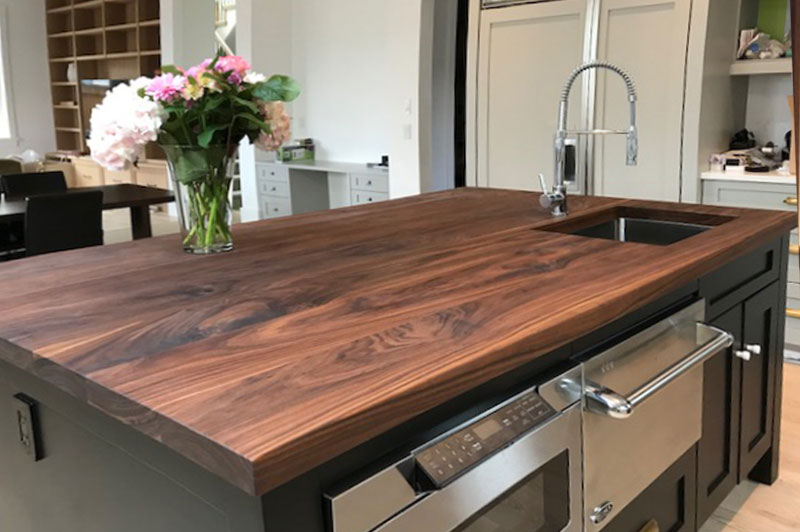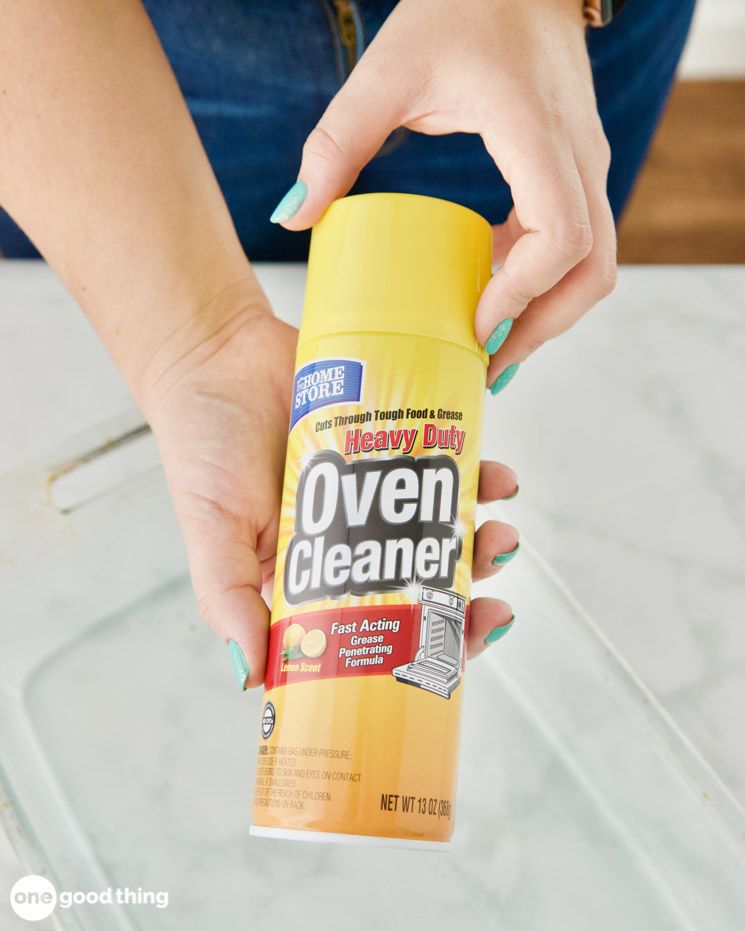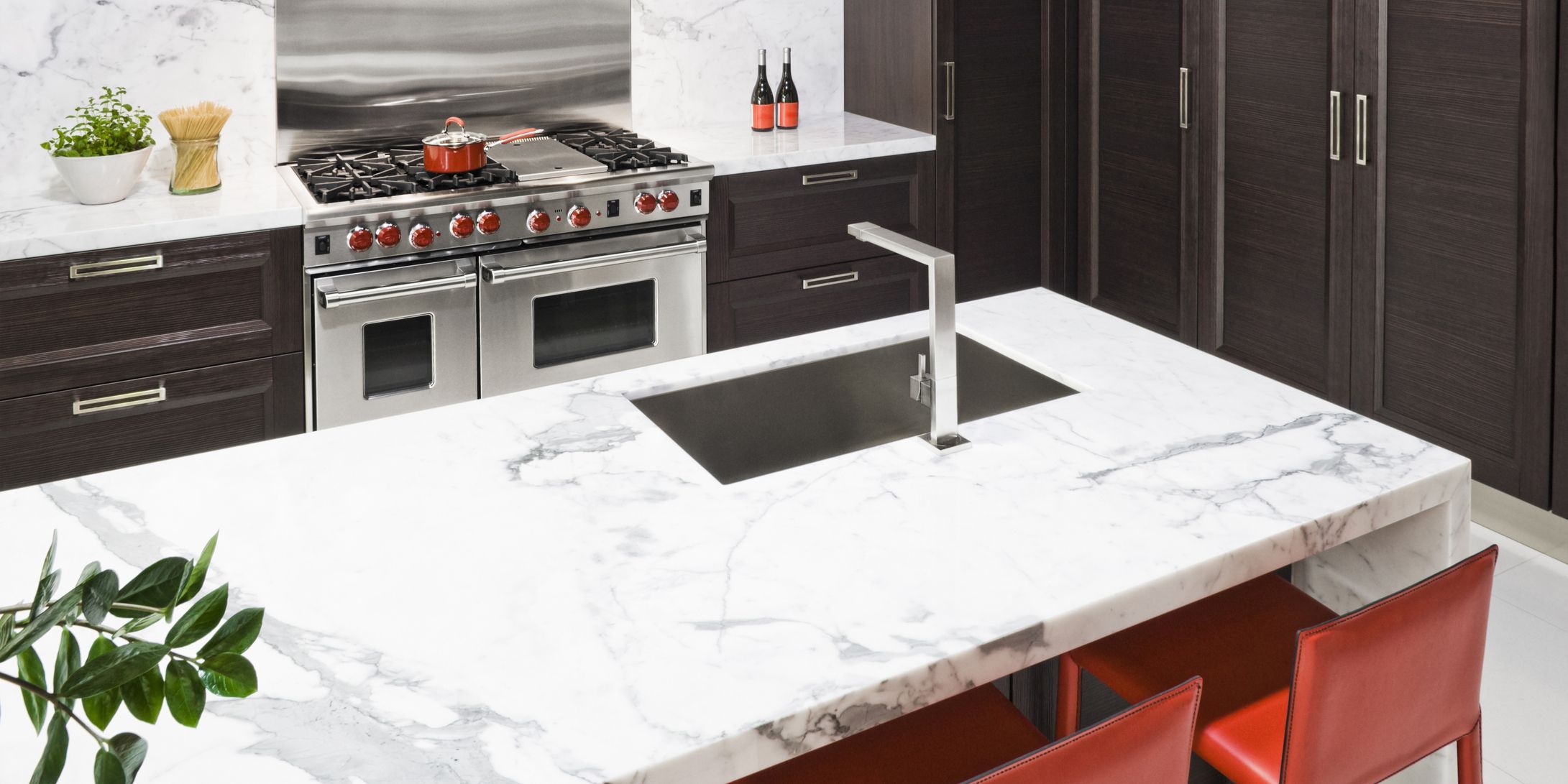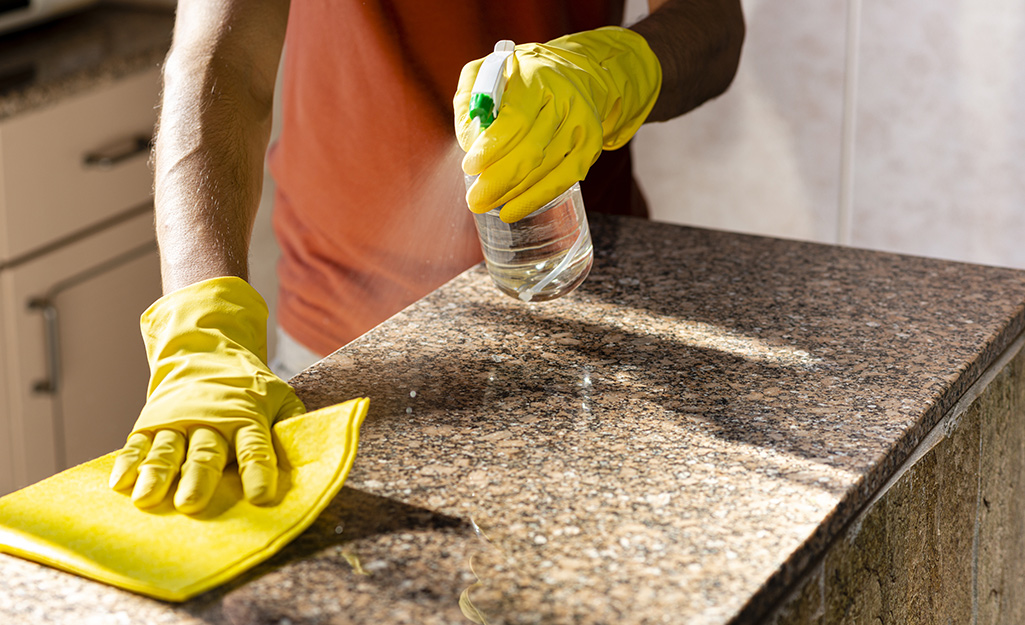What is the effect of oven cleaner on kitchen countertops? This is a question that many homeowners ask themselves when they are trying to clean their kitchen. Oven cleaner can be a powerful chemical, and it is important to know what its effects are before using it. In this blog post, we will discuss the effects of oven cleaner on different types of countertops. We will also provide tips for how to safely clean your countertops with oven cleaner.

Why Oven Cleaner Are Not Good On Kitchen Countertops
Oven cleaner are not good on kitchen countertops because the chemicals in oven cleaner can cause the sealant on your countertops to break down and deteriorate. This means that your counters could be more susceptible to staining and bacteria growth. Additionally, oven cleaners can leave a residue on your countertops that is difficult to remove.
Toxic Chemicals in Oven Cleaners
What exactly are these toxic chemicals in oven cleaners? Here are some of the main ingredients to watch out for:
- Sodium hydroxide, also known as lye or caustic soda.
This chemical can cause severe burns to the skin and eyes upon contact. It may also be toxic if swallowed. If oven cleaner accidentally gets on your counters or in your sink, it is important to wash it off immediately with plenty of water using rubber gloves for protection from the oven cleaner’s harmful chemicals.
- Ammonia
This ingredient works alongside sodium hydroxide by making oven cleaners more effective at dissolving grease and dirt stuck onto oven surfaces. However, when ammonia mixes with bleach, it creates a gas called chloramine that can burn the lungs if inhaled and cause other respiratory problems such as wheezing and coughing after exposure.
- Butane
Butane, which is used in oven cleaners as a propellant to help distribute the oven cleaner onto surfaces and into crevices within ovens, can irritate your skin if you come into contact with it for an extended period of time or at high concentrations. It may also cause dizziness, headaches and other neurological issues when inhaled repeatedly over long periods of time.

- Monobutyl ether
This ingredient is used in oven cleaners as a degreaser and surfactant. It may cause skin irritation or burns upon contact, depending on how long you are exposed to it for
- Ethylene glycol monobutyl ether (EGBE)
This chemical is used in oven cleaner because it can dissolve grease and fats from oven surfaces more effectively than other ingredients. However, EGBE has been shown to be toxic if ingested orally – so make sure that there’s no residue left from oven cleaner after using them around food-preparation areas like your kitchen countertops!
The Effects Of Oven Cleaners On Different Countertop Materials
- Granite countertops
Granite is a natural stone that is relatively durable, but oven cleaner can still cause damage to the sealant or finish if left on for too long. It is best to use a mild detergent and warm water to clean granite counters rather than an oven cleaner.
- Marble Countertops
Marble is also a natural stone, but it is more porous than granite and therefore more susceptible to staining. Oven cleaners should not be used on marble countertops as they can strip away the sealant and leave behind a residue that will make future cleaning more difficult.

- Laminate Countertops
Laminate countertops are made of plastic or other synthetic materials and are not as durable as granite or marble. oven cleaners can cause damage to the surface of laminate countertops, so it is best to use a mild detergent and water to clean them.
- Stainless Steel Countertops
Stainless steel is a very durable material that does not need much regular cleaning. However, oven cleaner can be used to remove stubborn grease or food residue from stainless steel surfaces – but make sure you wipe off any excess oven cleaner with a damp cloth to avoid leaving any residue behind.
- Tile Countertops
Tile is a very durable material but oven cleaner can be harsh on it and cause the grout to discolor. It is best to use a mild detergent and water to clean tile countertops rather than an oven cleaner.
- Concrete Countertops
Concrete is a very porous material and can easily absorb liquids, so oven cleaners should not be used on concrete countertops. If there is any food or grease residue on concrete counters, it can be cleaned with a mixture of baking soda and water. Baking soda will help to remove any lingering smells from the oven cleaner as well.

What’s the bottom line?
Be sure to read the ingredients list before using oven cleaners – especially if you have sensitive skin or allergies to certain chemicals in oven cleaners. Make sure not only that you don’t leave oven cleaner on granite countertops for too long but also check out this list of five dangerous ingredients found in oven cleaner which could be harmful if inhaled or absorbed through your skin!
If you are ever unsure about the safety of using oven cleaner on your specific kitchen countertop materials, it is always best to consult with your local hardware store or home improvement specialist for more information. And remember, when in doubt – don’t oven clean!
